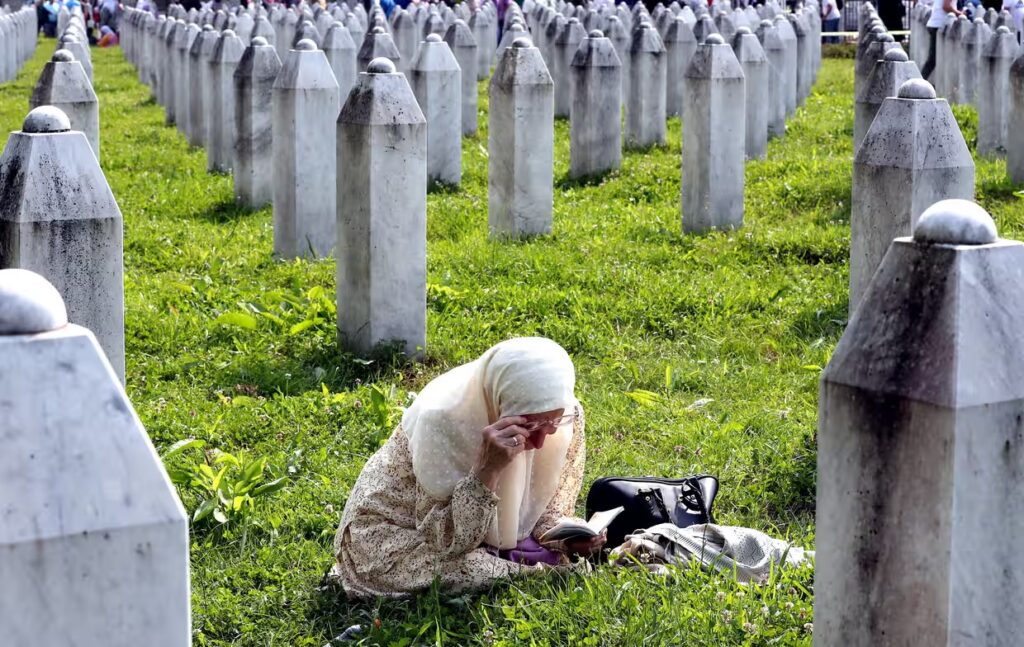Council’s commissioner for human rights says some people prosecuted in the Hague for war crimes ‘return to their communities as heroes’
The failure of the countries of the former Yugoslavia to address their violent past has had devastating consequences for human rights and could ultimately lead to a return to conflict in the region, according to a new Council of Europe report.
The report, published on Thursday by the council’s commissioner for human rights, Dunja Mijatović, said the region has been backsliding for many years on seeking justice and accountability for the brutal wars of the 1990s in Croatia, Bosnia and Kosovo, which killed more than 130,000 people.
The impact of legal breakthroughs in the aftermath of those wars, such as the establishment of a war crimes tribunal in The Hague, and the arrest and conviction of many of the political and military leaders responsible for the mass killings, are beginning to fade and impunity is returning, the report suggests.
It was hoped that national courts would continue to pursue the many thousands of other perpetrators, but their momentum has slowed dramatically. Ethno-nationalists are politically dominant across the region, promoting hate speech and denial of genocide and other crimes against humanity.
“After the trials in The Hague, most of the people who served a sentence and were recognised as a war criminals return to their communities as heroes, which I find devastating,” Mijatović said.
Her report, Dealing with the Past for a Better Future, concludes: “Time is running out and victims have been waiting for a very long time.
“Worse still, the divisive and hateful narratives that spearheaded the wars of the 1990s are back and regaining strength,” the report says. “This not only threatens reconciliation but even peace. The failure to fully deal with the violent past in the region is having devastating consequences for respect for human rights and the rule of law.”
The mainly Serb areas of northern Kosovo have proven a flashpoint recently. On 24 September, there was a shootout near an Orthodox monastery in the village of Banjska between a heavily armed paramilitary group of Serbs and the Kosovan police. Three Serb gunmen and a policeman from the ethnic Albanian majority were killed in a clash that the government in Pristina blamed on the Serbian leadership in Belgrade.
In Bosnia, the Serb-run half of the country, Republika Srpska, which was carved out largely by ethnic cleansing in the 1992-95 war there, is led by a militant separatist, Milorad Dodik who describes the 1995 genocide at Srebrenica as a “a fabricated myth”.
Dodik and the Serbian president, Aleksandar Vučić, both have close ties with Moscow. In her report, Mijatović, who will leave her post in March, said: “Russian support for Serb rightwing activists and organisations is multifaceted and spans from support for online activities to military training.”
Last week, the Ukrainian president, Volodymyr Zelenskiy, warned that Vladimir Putin planned to stir up renewed conflict in the former Yugoslavia.
“Pay attention to the Balkans. Believe me, we get the information. Russia has a long plan: Middle East, the second distraction will be the Balkans,” Zelenskiy said. “If the countries of the world do nothing now, there will be such an explosion again.”
Source : The Guardian


